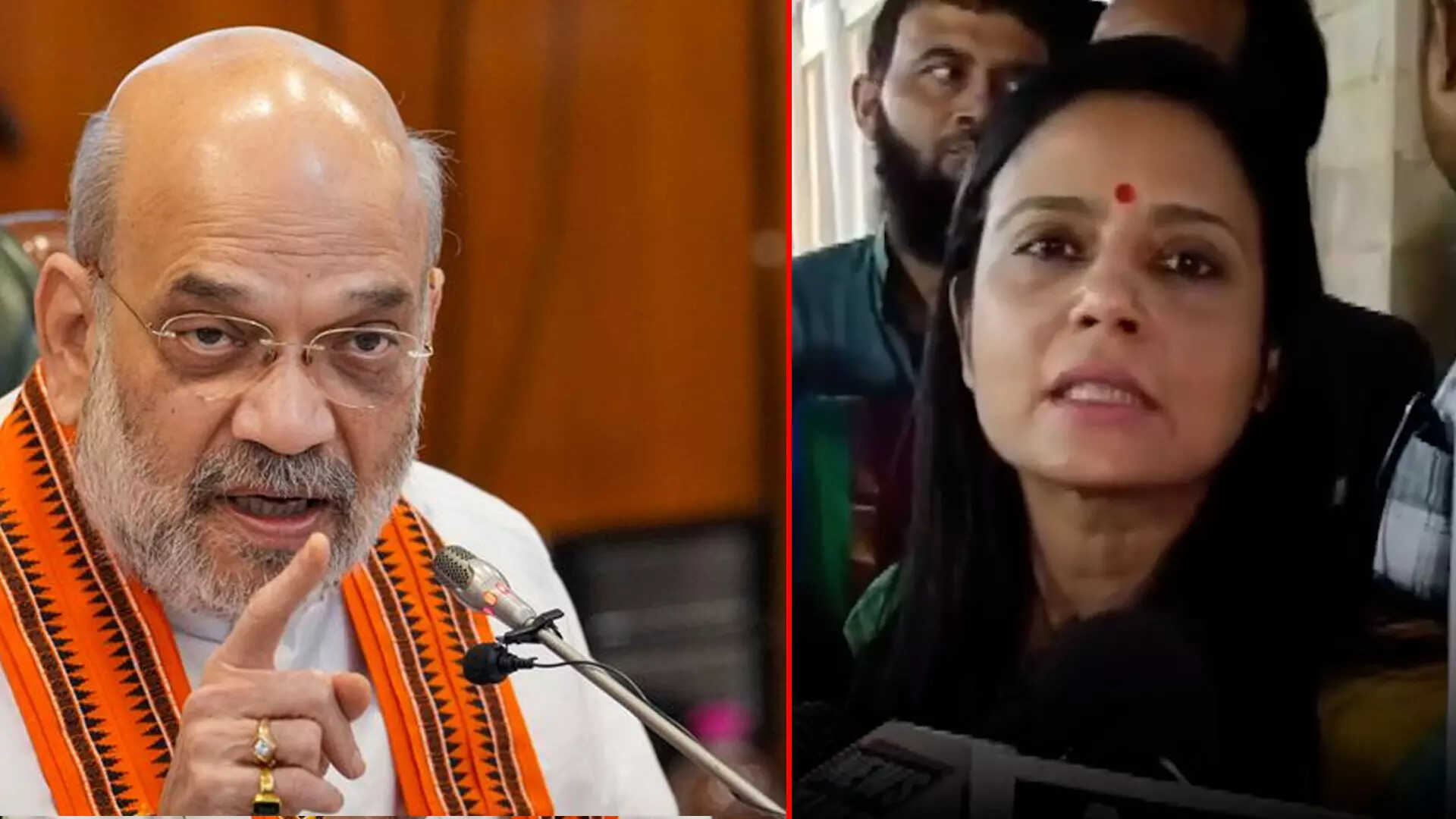Politics
Mahua Moitra Defends Remarks as Controversy Sparks Political Debate

Trinamool Congress MP Mahua Moitra has found herself at the center of a political storm following the filing of a First Information Report (FIR) against her in Raipur. The complaint arises from her comments aimed at Union Home Minister Amit Shah, which critics claim were incendiary. Moitra has since clarified that her remarks, rooted in a Bengali idiom, were misinterpreted and intended to convey a message of “taking responsibility” rather than advocating for violence.
In her defense, Moitra criticized members of the Bharatiya Janata Party (BJP) for distorting her words. She remarked, “Idiots do not understand idioms,” emphasizing the importance of context in political discourse. Her comments have ignited a fierce debate within Indian politics, highlighting the contentious nature of political rhetoric in the country.
Political Reactions and Comparisons
The fallout from Moitra’s statements has prompted reactions across party lines. Supporters view her as a victim of political harassment, while opponents argue that her words were irresponsible. In a provocative comparison, Moitra likened herself to Joan of Arc, stating that such attacks only serve to strengthen her resolve and political standing.
The incident underscores the heated atmosphere in Indian politics, where language and interpretation can lead to significant repercussions. Moitra’s comments not only reflect her personal views but also resonate with broader themes of accountability and political expression in the nation.
Implications for Political Discourse
As the controversy unfolds, it raises questions about the nature of political dialogue in India. The ability to speak candidly without fear of misinterpretation is crucial for democratic engagement. Moitra’s situation illustrates the challenges faced by politicians in navigating complex cultural idioms while addressing a diverse electorate.
The ongoing debate surrounding her remarks serves as a reminder of the delicate balance required in political communication. In an era where every statement can be scrutinized and weaponized, the responsibility lies with both politicians and the media to foster a more nuanced understanding of language in politics.
As the political landscape continues to evolve, Moitra’s case will likely remain a focal point for discussions on freedom of speech and accountability in public office. The outcome of this controversy could have lasting implications for how politicians engage with their constituents and each other in the future.
-

 World5 months ago
World5 months agoSBI Announces QIP Floor Price at ₹811.05 Per Share
-

 Lifestyle5 months ago
Lifestyle5 months agoCept Unveils ₹3.1 Crore Urban Mobility Plan for Sustainable Growth
-

 Science4 months ago
Science4 months agoNew Blood Group Discovered in South Indian Woman at Rotary Centre
-

 World5 months ago
World5 months agoTorrential Rains Cause Flash Flooding in New York and New Jersey
-

 Top Stories5 months ago
Top Stories5 months agoKonkani Cultural Organisation to Host Pearl Jubilee in Abu Dhabi
-

 Sports4 months ago
Sports4 months agoBroad Advocates for Bowling Change Ahead of Final Test Against India
-

 Science5 months ago
Science5 months agoNothing Headphone 1 Review: A Bold Contender in Audio Design
-

 Top Stories5 months ago
Top Stories5 months agoAir India Crash Investigation Highlights Boeing Fuel Switch Concerns
-

 Business5 months ago
Business5 months agoIndian Stock Market Rebounds: Sensex and Nifty Rise After Four-Day Decline
-

 Sports4 months ago
Sports4 months agoCristian Totti Retires at 19: Pressure of Fame Takes Toll
-

 Politics5 months ago
Politics5 months agoAbandoned Doberman Finds New Home After Journey to Prague
-

 Top Stories5 months ago
Top Stories5 months agoPatna Bank Manager Abhishek Varun Found Dead in Well









